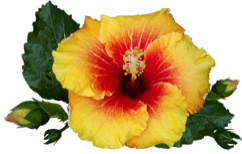SalidonaPublishing.com
0.
0.
Music of the Future: The Impact of AI on Music Creation and Copyright Challenges
This section covers topics such as songwriting, composition, music production, and the creative process, as well as what is currently happening in the music scene, medical research, etc.
It is important to recognize that the statements in this section are solely my opinions and should not be taken as fact. It is important to do your own research and make decisions based on facts rather than opinion. It is also important to remember that opinions can change over time and should not be taken as concrete.

0.
As technology continues to advance, artificial intelligence (AI) is becoming increasingly integrated into various aspects of our lives, including the creation of music. AI-generated music is a fascinating and innovative development that has the potential to revolutionize the music industry. One method that AI music generating algorithms use is by using existing music as a database for their AI algorithms. While this has led to some incredible and unique musical compositions, it has also raised questions about copyright law and intellectual property rights.
AI-generated music works by analyzing vast amounts of existing music to identify patterns and trends. By studying these patterns, AI algorithms can then generate new compositions that mimic the style and characteristics of the input music. This has the potential to create an endless stream of original music that is inspired by, but not directly copied from, existing works.
However, this process raises concerns about copyright law and intellectual property rights. Under current copyright law, musical compositions and recordings are protected as intellectual property, meaning that the original creators have the exclusive rights to reproduce, distribute, and perform their works. When AI-generated music is created using existing music as a database, there is a risk that the new compositions may inadvertently infringe on the copyright of the original works.
In order to address these issues, it is important for creators of AI-generated music to take steps to ensure that their creations do not violate existing copyrights. This may involve obtaining licenses or permissions from the original creators, or using only music that is in the public domain or that has been designated as free for commercial use.
In some cases, AI-generated music may also be subject to copyright protection itself. If an AI algorithm produces a musical composition that is sufficiently original and creative, it may qualify for its own copyright protection. This raises interesting questions about the nature of creativity and authorship in the digital age, as well as the potential for AI to be recognized as a co-creator of artistic works.
As the technology and legal framework surrounding AI-generated music continue to evolve, it is important for creators, musicians, and legal experts to work together to ensure that intellectual property rights are respected and upheld. By striking a balance between innovation and respect for original creators, AI-generated music has the potential to enrich the music industry and open up new possibilities for artistic expression.
For further reading: Music and the Human Brain, Second Edition, by Eliasar A. Simon, MD, on Amazon.
For further music listening: Salidona.com
Eliasar A. Simon, M.D.


